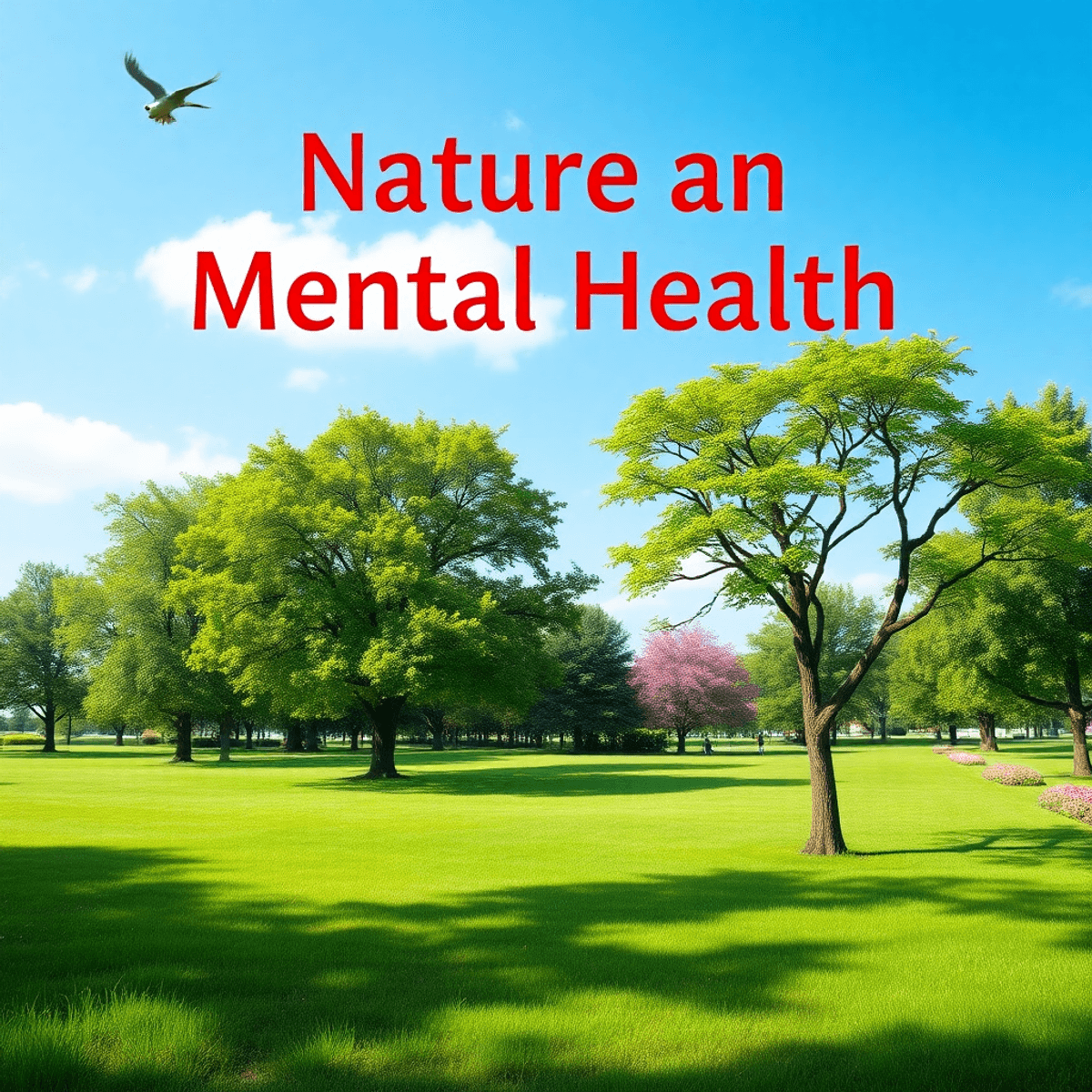Scientific studies are increasingly recognizing the connection between the natural environment and mental health. Spending time in nature has been shown to significantly improve our mental well-being, with some studies indicating it can increase happiness levels by up to 30%. This relationship emphasizes the profound influence that nature and mental health have on each other.
To fully understand these benefits of nature, we need to explore the complex relationship between our environment and our emotions. In this article, we will delve into the scientific explanations behind this phenomenon, looking at theories that shed light on why natural settings are so beneficial. We will also offer practical tips on how you can apply these insights in your everyday life, even if you live in a city with limited access to green spaces.
By examining the connection between nature and mental health, we hope to provide you with valuable strategies for improving your overall well-being. Our goal is to inspire you to make outdoor activities an essential part of your life for better balance and happiness.
The Science Behind Nature’s Impact on Mental Health
Understanding the connection between nature and mental health often begins with the Biophilia hypothesis. This theory suggests that humans have an innate tendency to seek connections with nature, rooted in our evolutionary past. Our ancestors depended on natural environments for survival, which may explain why modern individuals often find comfort and rejuvenation in natural settings. This intrinsic bond implies that engaging with nature can fulfill a deep-seated psychological need, leading to improved emotional well-being.
The Attention Restoration Theory (ART) offers another perspective on how nature benefits mental health. ART suggests that urban living and constant digital engagement drain our cognitive resources, resulting in mental fatigue. Natural environments, with their effortless engagement, allow the mind to recover and restore focus. Consequently, spending time in nature can help replenish attention capacities, enhancing concentration and reducing stress levels.
Both the Biophilia hypothesis and Attention Restoration Theory highlight nature’s positive effects on cognitive function and emotional stability:
- Cognitive Function: Exposure to natural settings has been shown to improve memory, problem-solving skills, and creative thinking. Nature provides a mental break, enabling individuals to approach tasks with fresh clarity.
- Emotional Well-being: Interacting with nature can lead to increased happiness and decreased symptoms of anxiety and depression. These theories emphasize the therapeutic potential of green spaces in promoting emotional resilience.
These theories reveal how interconnected we are with our natural surroundings. The science supporting this connection highlights the significance of incorporating nature into daily life for better mental health outcomes.
Physiological Benefits of Nature Exposure
Spending time in natural environments can significantly lower physiological stress responses, enhancing mental health outcomes. The soothing presence of nature has been shown to reduce stress hormones like cortisol, which is often elevated due to the pressures of daily life. This reduction in cortisol levels is a clear indicator of the calming effects that nature can have on your body and mind.
Lowering Blood Pressure and Promoting Cardiovascular Health
In addition to lowering cortisol, exposure to green spaces has been linked to decreased blood pressure. This finding suggests that the tranquility found in nature can contribute to better cardiovascular health, which is closely tied to mental well-being. When you immerse yourself in a natural environment, it creates a ripple effect that positively influences both physical and mental health.
Research Supporting the Benefits of Nature
These physiological benefits are backed by research demonstrating that regular interaction with nature leads to reduced stress and anxiety. For instance, studies have consistently shown that individuals who spend time outdoors report feeling more relaxed and less stressed compared to those who remain indoors. By engaging with the natural world, you can experience a tangible improvement in overall emotional resilience and life satisfaction.
Research Findings on Nature and Mental Health
Research shows that spending time in natural environments—like parks, forests, or by bodies of water—has a positive impact on mental health. Here are some key findings:
Higher Happiness Levels
Studies indicate that people who spend time in nature report feeling happier. This increase in happiness is believed to come from the calming and restorative effects of being outdoors, which help reduce stress and promote a sense of well-being.
Reduced Rates of Psychiatric Disorders
Living close to green spaces has been linked to lower rates of psychiatric conditions. It seems that being around nature can protect against the development of mental health issues.
Increased Life Satisfaction
Individuals who frequently engage with nature often express greater satisfaction with their lives. This lasting contentment goes beyond temporary feelings; it signifies long-term improvements in overall well-being.
These findings emphasize the significant benefits for those who make nature a part of their lives. By prioritizing time spent outdoors, individuals may experience better mental health and emotional stability.
Ecotherapy: A New Approach to Mental Health Treatment
Ecotherapy is an innovative treatment method that uses the healing power of nature to improve mental well-being. This approach recognizes our natural connection with the environment and promotes psychological healing through direct interaction with nature. By spending time outdoors, individuals can experience reduced stress and enhanced emotional health.
Activities in Ecotherapy
Ecotherapy encompasses various activities, all of which aim to strengthen the relationship between individuals and their surroundings. Some popular practices include:
- Walking Therapy: Guided walks in peaceful settings encourage mindfulness and self-reflection.
- Gardening: Cultivating plants fosters a sense of accomplishment and connection to life cycles.
- Green Exercise: Outdoor physical activities like yoga in parks or cycling in scenic areas combine fitness with nature immersion.
The Benefits of Ecotherapy
Research supports the effectiveness of these activities in improving mental health outcomes. Studies indicate that participating in ecotherapy can lead to significant reductions in symptoms of anxiety and depression. The immersive experience of being in nature, combined with physical activity, contributes to enhanced mood and relaxation.
By integrating therapeutic practices in natural settings, ecotherapy offers a holistic approach to mental health care. It provides an accessible option for individuals seeking alternative methods to traditional therapies, leading to long-lasting improvements in emotional resilience and overall well-being.
Practical Ways to Incorporate Nature into Daily Life
Finding ways to engage with nature can be challenging, especially in urban settings where access to green spaces might be limited. However, there are creative ways to infuse nature into your daily routine:
1. Utilize Urban Green Spaces
Seek out local parks, community gardens, or tree-lined streets for a quick escape into nature. Even in the heart of a city, these small patches of greenery can provide a much-needed respite.
2. Engage in Outdoor Activities
Make the most of what’s available by taking part in outdoor activities such as jogging, cycling, or simply walking around your neighborhood. These activities not only boost your physical health but also offer mental rejuvenation.
3. Create a Personal Nature Corner
If outdoor access is limited, consider bringing nature indoors. Houseplants, small water features, or even nature-themed art can create a calming environment within your home.
4. Practice Mindful Walking
Walking mindfully through a natural environment, focusing on the sights, sounds, and smells around you can enhance your connection to nature. This practice encourages mindfulness and stress reduction.
5. Observe Natural Beauty
Take moments throughout your day to pause and appreciate the beauty of the natural world. Whether it’s watching birds from your window or observing the changing colors of the sky at sunset, these moments can significantly boost your mood and well-being.
Incorporating these practices into everyday life can help maintain mental clarity and emotional balance amidst the hustle and bustle of modern living.
Conclusion
Adopting a holistic approach to mental health by prioritizing regular engagement with nature can lead to significant improvements in emotional resilience and overall well-being. Whether it’s a stroll through a local park or simply pausing to admire the sky, integrating the natural environment into daily routines offers an accessible path to enhance mental health.
- Prioritize Nature: Make it a habit to spend time outdoors, tapping into the innate benefits that nature provides.
- Mindful Engagement: Practice mindfulness while in natural settings to maximize the positive effects on your mental state.
By incorporating these simple practices, you harness the restorative power of nature, fostering a deeper connection with the world around you and nurturing your mental health.
Discover more from NatureZen Market
Subscribe to get the latest posts sent to your email.










